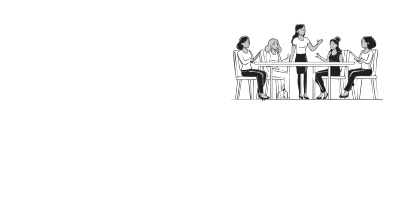

By Esther Haviland
Jill Hoffman, Vice President, Food Safety, Quality, and Consumer Affairs at B&G Foods Inc. Chief Engagement Officer of Women in Food Safety

I started college as an animal science major, intending to become a veterinarian. By sophomore year, I realized it was not the right path for me and switched to food science after taking a summer course and discovering my passion for human nutrition.
After graduating, I began as a quality supervisor at Tyson Foods, later moving into operations at Kraft Foods, where I gained in-depth manufacturing experience. I then transitioned back to food safety, supporting copacker compliance for Nabisco, which exposed me to various operations, management structures, and industry best practices.
My last role at Kraft was as a plant quality manager before moving to McCormick, where I led food safety initiatives across North America and later globally. In 2022, I joined B&G Foods as senior director of food safety and quality, eventually expanding my role to oversee consumer affairs. Now, 20 years in, I still learn something new every day.
In 2019, I was approached by the Women in Food Safety founder, Melody Ge, at a conference. She had the idea for the group and wanted to see if I would like to participate as a founder. I said yes and have been supporting this growing group ever since.
Women in Food Safety serves to support women working in food safety-related roles with opportunities for networking and growth, and to support young professional women launching their careers in food safety. We are trying to provide some of the tools and support that we did not necessarily have when we were growing our careers. We highlight female leaders in our industry by inviting them to share their stories, challenges, and career highlights in open, interactive discussions where members can ask questions and address the real issues working women face.
Since my career has been on the manufacturing side, which is typically very male-dominated, I have, in many cases, been the only woman in the room. As time has gone on, I have seen this evolve, and I do see women taking on more roles in manufacturing plants. Most of the time, the challenges that I have experienced or observed have been the traditional biases that are seen across all industries. It has gotten better, but biases still exist. Because my role in food safety is to sometimes be the bearer of bad news or to say no when everyone else is saying yes, it comes with a lot of pressure. If women do not manage pressure flawlessly, I have noticed that they are more heavily criticized than, perhaps, a male counterpart in a similar role.
A career in food safety requires more than just technical expertise—if you aspire to move into management and leadership, you must balance your technical skills with developing and applying strong leadership abilities. Platforms like Women in Food Safety are a fantastic way to bring female food safety professionals together, fostering connections that can lead to new opportunities, mentorship, and a supportive network of like-minded women.
As in any field, gaining respect and achieving success relies on some key social and leadership skills. I have an abundance of advice to share, but to narrow it down:
